Can a Bad RV Converter Drain the Battery – Check the Converter!
Yes, a bad RV converter can drain your battery. If the converter malfunctions, it may fail to charge the battery or, worse, pull power from the battery, slowly depleting it.
This could leave you stranded, especially if you’re not plugged into an external power source. Regular checks and maintenance of your RV’s converter can help avoid this issue and keep your electrical system running smoothly.
Introduction:
For RV enthusiasts, the electrical system is a lifeline, powering everything from lights and appliances to essential systems like heating and air conditioning.
At the heart of this system is the RV converter, a critical yet often overlooked component that keeps everything running smoothly. However, like any piece of equipment, converters can fail, leading to a host of issues, including battery drainage.
In this article, we’ll dive deep into how a bad RV converter can affect your vehicle, and explore ways to prevent and address these problems before they leave you stranded.
What is an RV Converter and Why is It Important?
An RV converter is responsible for transforming the AC (alternating current) power from an external source, like a campground hookup, into DC (direct current) power, which is required by the RV’s battery system and most of its internal components.
Without a properly functioning converter, the battery would not be able to recharge efficiently, and many essential electrical systems would fail to operate correctly.
Simply put, the converter ensures that all electrical devices onboard function smoothly, allowing you to enjoy your adventures without interruptions.
The Relationship Between the RV Converter and the Battery System:
The RV converter and the battery system share a symbiotic relationship. The converter charges the battery when the RV is plugged into an external power source, providing the necessary energy to keep the battery topped off.
If the converter malfunctions, the battery may not receive adequate power, leading to issues such as premature drainage, or worse, a complete loss of power when you’re off the grid. This interconnectedness makes it critical to keep both systems in optimal condition.
How the RV Converter Works:
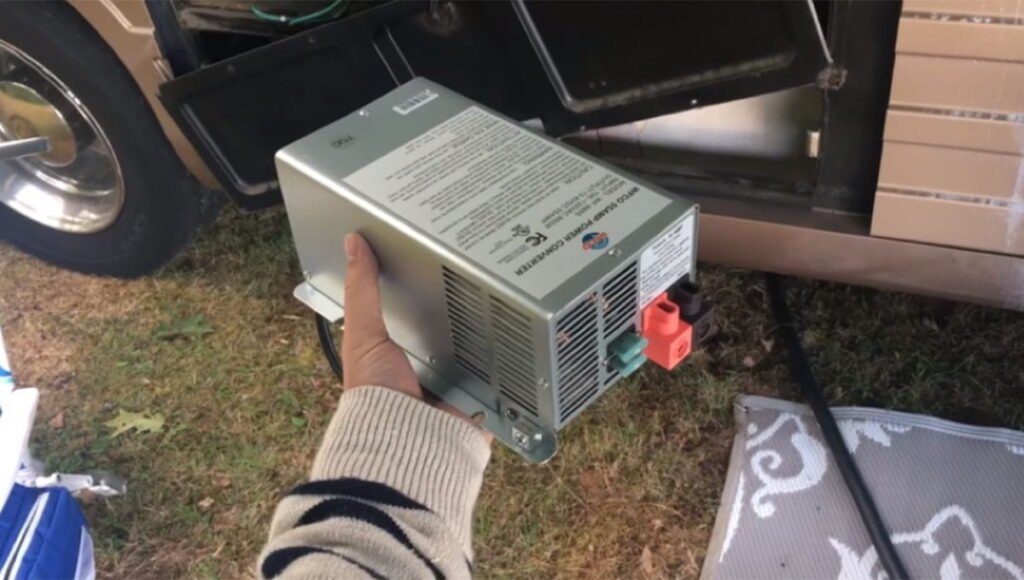
Converting AC Power to DC: A Simplified Explanation
In essence, the RV converter acts as a bridge between the external power source and your RV’s battery. It converts the high-voltage AC power, typically supplied by a campground or generator, into the lower-voltage DC power that is safe for your battery and RV systems to use.
This conversion process allows the RV to recharge its battery while also powering DC-operated appliances like lighting, water pumps, and fans. Without this vital conversion, your RV would be unable to store energy or run essential systems effectively.
The Lifeline of Your RV’s Electrical System:
The converter is more than just a power transformer—it’s the backbone of the entire electrical system. Every time you plug your RV into a power source, the converter goes to work, ensuring your battery stays charged and that all DC systems continue to operate without interruption.
Without a fully operational converter, your RV’s electrical system would gradually degrade, leading to inefficiencies and malfunctions that could leave you without power when you need it most.
The Difference Between a Converter and an Inverter: Clearing Up the Confusion:
It’s easy to confuse converters and inverters, but they serve opposite functions. While a converter changes AC power into DC, an inverter does the reverse—it converts DC power from your RV battery into AC, allowing you to use AC-powered devices such as microwaves, televisions, or air conditioning units while off-grid.
Understanding the distinction between the two can prevent costly mistakes when maintaining or upgrading your RV’s electrical system.
read also: Can I Run 2 Amps Off a Single Car Battery – The Truth Revealed!
Signs of a Bad RV Converter:
Flickering Lights and Other Electrical Anomalies: What to Watch For
One of the first signs of a failing RV converter is flickering or dimming lights, which can indicate inconsistent power delivery. You might also notice certain appliances not functioning as efficiently as they should, or other erratic electrical behavior.
These issues are often subtle at first but can worsen over time as the converter’s condition deteriorates. Ignoring these early signs could lead to more severe and costly problems down the line.
Battery Not Charging Properly: Is the Converter to Blame?
When your RV’s battery isn’t holding a charge, the converter is often the culprit. A malfunctioning converter may fail to provide the necessary voltage to recharge the battery properly, leaving you with insufficient power reserves when you unplug from a power source.
If you find yourself frequently dealing with a low or dead battery, it’s worth testing the converter to determine if it’s the root of the problem.
Burnt Smells and Unusual Noises: Red Flags You Shouldn’t Ignore
If you smell something burning or hear strange buzzing or clicking noises near the converter, these are signs of a serious issue. A burnt smell can indicate overheating, while unusual noises suggest internal electrical problems, such as failing components.
These red flags warrant immediate attention, as continuing to use a faulty converter can lead to more extensive damage to your RV’s electrical system.
Can a Bad RV Converter Drain the Battery?

How a Faulty Converter Can Actually Drain Your Battery:
A bad converter not only fails to charge the battery properly but can also drain it. If the converter is malfunctioning, it may pull power from the battery instead of supplying it, slowly depleting the battery over time.
This situation can leave you unexpectedly stranded with a drained battery, especially when you’re far from an external power source.
The Domino Effect: What Happens When a Bad Converter Disrupts Your RV’s Electrical System
When a converter goes bad, the resulting disruption can affect more than just the battery. The entire RV electrical system can experience a cascading series of failures.
Appliances and lights may malfunction, batteries may discharge quicker, and the strain on other components increases. The longer the problem persists, the more damage it can cause, requiring costly repairs or replacements.
Why Your RV Battery Might Die Overnight:
Have you ever woken up to a dead battery, even though it seemed fine the night before? This could be due to a faulty converter that drains the battery when the RV is not plugged in.
Without realizing it, your RV’s battery could be slowly losing charge as the converter continues to malfunction, leaving you powerless when you need it most.
read also: Can a Bad Battery Cause O2 Sensor Code – Find Out Now!
Testing and Diagnosing a Bad RV Converter:
Simple Tools and Methods to Check Your Converter’s Health:
Testing an RV converter can be done with basic tools like a multimeter, which measures voltage. By checking the output voltage at the converter, you can determine whether it’s delivering the right amount of power to charge the battery. If the readings are too low or too high, it’s a sign that the converter isn’t functioning correctly.
How to Properly Test the Output Voltage of Your RV Converter:
To test the converter, first ensure the RV is connected to an external power source. Then, use the multimeter to check the voltage at the converter’s output terminals.
The ideal reading should be between 13.2 to 14.4 volts, depending on your battery’s state. Any significant deviation from this range could indicate a problem with the converter.
What to Do if Your Converter Fails: Quick Troubleshooting Tips
If your converter fails, there are a few troubleshooting steps you can take before replacing it. Check for blown fuses, loose connections, or tripped breakers, as these can sometimes cause converter malfunctions.
If none of these solutions resolve the issue, it may be time to consider replacing the converter altogether.
Preventing RV Converter Issues:
Routine Maintenance Tips to Prolong the Life of Your Converter:
Regular maintenance can extend the life of your RV converter and help prevent unexpected failures. Ensure that the converter is kept clean and free of dust, as debris can cause overheating.
Regularly inspect connections for signs of corrosion or wear, and replace any damaged wiring or components to ensure a stable power flow.
Battery and Converter Health: Best Practices for RV Owners
Proper care of both your battery and converter is essential to avoid electrical problems. Always use the appropriate converter for your battery type, and avoid overloading the system with too many devices at once. Monitoring the voltage regularly can help catch issues before they escalate.
Upgrading to a Smart Converter: Is It Worth It?
Smart converters offer advanced charging capabilities and improved energy efficiency, making them a popular upgrade for many RV owners.
These converters can automatically adjust their output based on the battery’s needs, reducing the risk of overcharging or undercharging. If you’re looking for more reliability and better battery health, investing in a smart converter could be worth the cost.
When to Replace Your RV Converter:
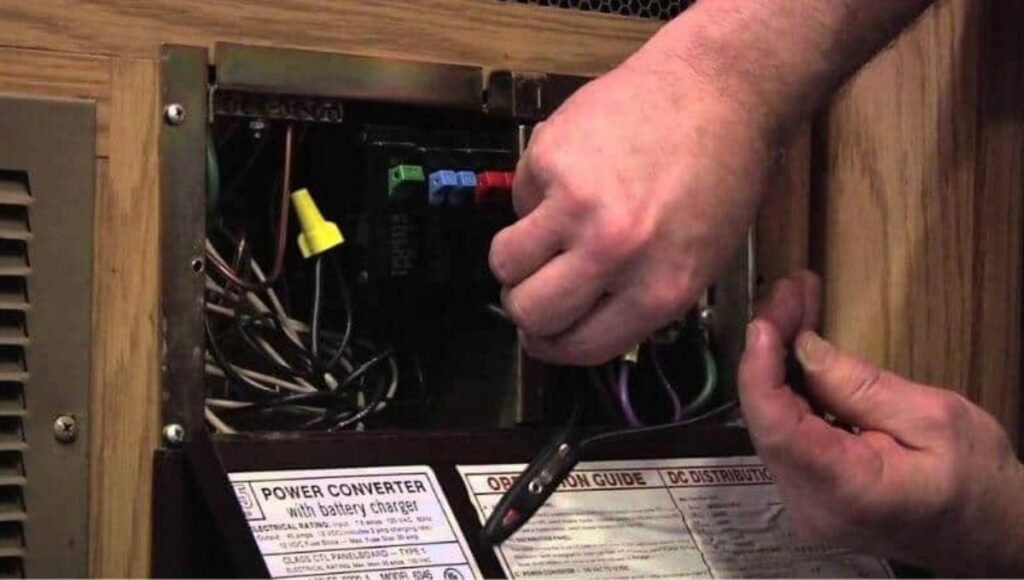
Warning Signs That Mean It’s Time for a Replacement:
If your converter consistently fails to charge the battery, produces odd smells, or causes frequent electrical issues, it’s likely time for a replacement.
Delaying replacement can lead to further damage to your RV’s electrical system, potentially resulting in higher repair costs in the long run.
The Cost of Replacing an RV Converter: What to Expect
Replacing an RV converter can vary in cost depending on the model and whether you choose to do it yourself or hire a professional. On average, replacement converters can range from $200 to $600, with professional installation adding extra costs.
However, the investment is worthwhile when compared to the inconvenience of a failing electrical system.
DIY vs. Professional Replacement: Which Option is Right for You?
While replacing a converter can be a DIY project for those with electrical knowledge, it’s often best left to professionals, especially if you’re unsure of the process.
A professional can ensure the job is done safely and correctly, preventing potential hazards or improper installation that could lead to further issues.
read also: Can a Bad Battery Cause Stabilitrak Problems – Find Out Now!
FAQ’s
1. Can a bad RV converter drain the battery?
Yes, a malfunctioning RV converter can drain the battery by pulling power instead of recharging it properly.
2. What are the signs of a bad RV converter?
Common signs include flickering lights, a battery that won’t charge, burnt smells, and unusual noises.
3. How do I test my RV converter?
Use a multimeter to check the converter’s output voltage. It should read between 13.2 to 14.4 volts.
4. Can a bad converter affect the entire electrical system?
Yes, a bad converter can cause a chain reaction, leading to malfunctions across your RV’s electrical system.
5. What should I do if my RV converter fails?
Check for blown fuses or loose connections. If the problem persists, consider replacing the converter.
Conclusion:
A properly functioning RV converter is essential for maintaining your vehicle’s electrical health and battery longevity. By staying vigilant about the signs of failure and keeping up with regular maintenance, you can avoid costly breakdowns and enjoy your travels with peace of mind. Whether it’s routine care or timely replacement, keeping your converter in top shape ensures your RV remains a reliable companion on the road.
Read Also:
Why My ATV Dies When Battery Disconnected – Here’s the Fix!
How to Troubleshoot a Car That Won’t Start Despite a New Battery – Here’s What to Do!
Can a Bad Alternator Stop Battery from Charging – Quick Fix Guide!
Why does my car battery light stay on even after replacement – Fix it now!
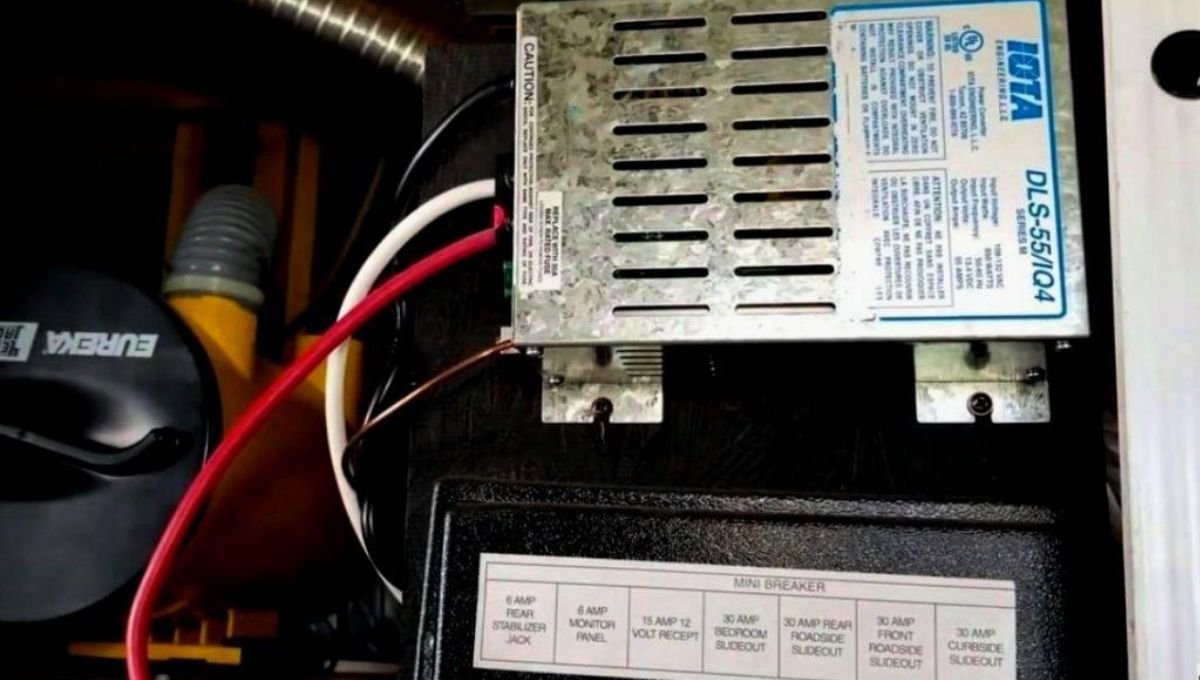

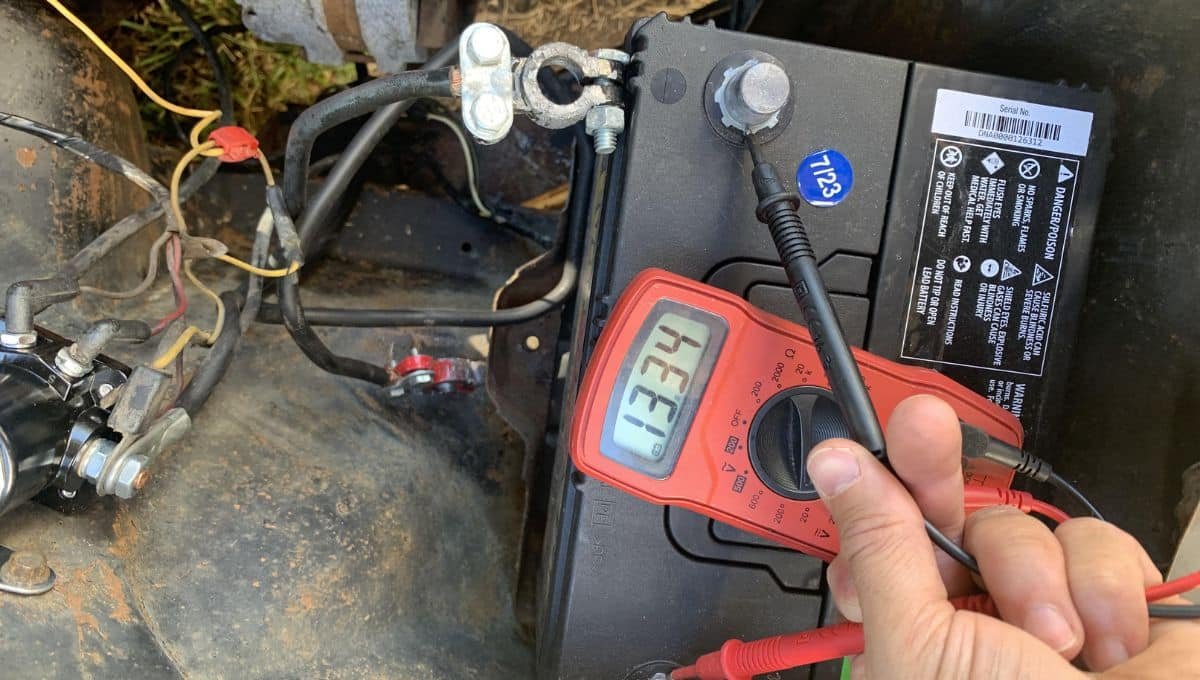
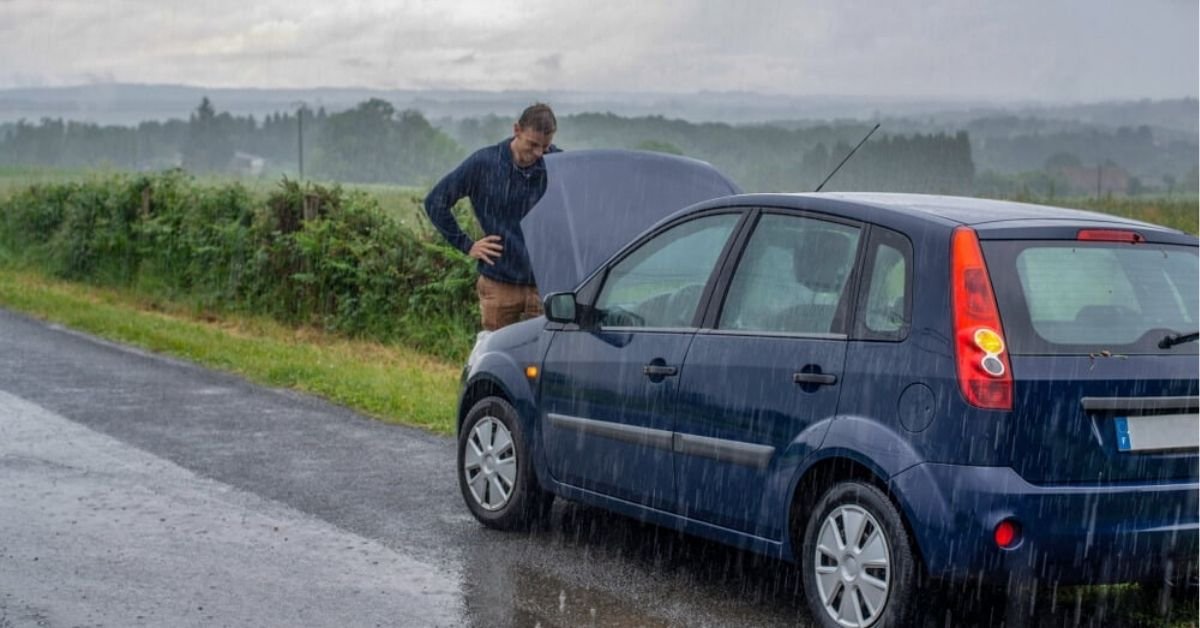

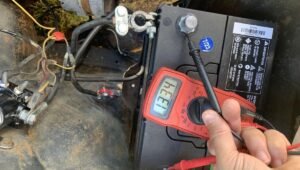




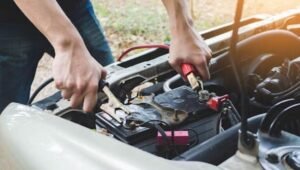


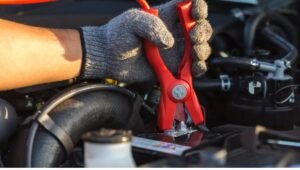
Post Comment